Sixth Form Course Guide
A Level course specifications and breakdown






It offers you a superbly supportive environment that will not just provide a passport to the best universities, art schools and other institutions of higher education in Britain and abroad, but also offer you two years of discovery, stimulation and challenge.
We hold a number of Open Days a year and you are always welcome to come for a personal visit. It is also possible to arrange a taster day tailored to the subjects you may wish to study where possible.
Entry to Sixth Form will usually be conditional on achieving at least Grade 6 in the subjects you wish to study at A Level with the following exceptions:
• Grade 7 for Mathematics
• Grade 8 for Further Mathematics
• Two Grade 6 in Combined Science to do any Science.
Grade 6 is usually required in related subjects to study the following subjects:
• Business Studies requires at least a grade 6 in English and Mathematics
• Economics requires at least a grade 6 in English and Mathematics
• Media Studies requires at least a grade 6 in English
• PE requires at least a grade 6 in Biology
• Politics requires at least a grade 6 in English
• Psychology requires at least a grade 6 in Mathematics
Students will also be invited to attend an interview with the Director of Sixth Form and confidential references will be requested and reviewed from your current school.
Scholarships are also available at Sixth Form at St Edmund’s College. Academic, music, art and sports scholarships are available, and we call these the Cardinal Allen Scholarships.
The prospect of Sixth Form education at St Edmund’s College is a most exciting, challenging and important one.
Head of Department
Mrs S Applegate
Email: sapplegate@stedmundscollege.org
Studying Art enables students to reflect on and interpret the world around them, and to gain insights that develop their sense of personal identity and their understanding of themselves and others.

WJEC Eduqas A650QS
Course breakdown
This course is a linear course and assessment for both components is completed at the end of Rhetoric II. This means that students will complete the A-level examination in the summer term. There is an internal assessment at the end of Rhetoric I. Further information can be found in the full specification, which is available on the Eduqas AS / A Level Art, Craft and Design webpage.
60% of qualification / 120 marks
The personal investigation consists of two parts:
•A major in-depth critical, practical, and theoretical investigative project / portfolio and outcomes based on units and subject matter that have a personal significance.
•An extended written elements of 1000-3000 words, which may contain images and text. This must clearly relate to practical and theoretical work using an appropriate working vocabulary and specialist terminology.
Both parts of component 1 will be assessed together using the assessment objectives. Students will be required to select, evaluate, and present their work for assessment. The personal investigation will be determined by the learner and teacher, assessed by the teacher and externally moderated.
This assessment consists of two parts: Part 1 - Preparatory study period
•The assignment materials are to be released to students from 1st February (in Rhetoric II) and will consist of a series of visual and written stimuli, which are to be presented to the learner at the start of the preparatory period.
One of the stimulus is to be selected by the learner and used as a starting point from which to elicit a personal response. Responses are developed during the preparatory study period. They should take the form of critical, practical, and theoretical preparatory work/supporting studies which inform the resolution of ideas in the 15 hours sustained focus study.
The start of the preparatory study period is defined as the date upon which the externally set assignment materials are presented to the learner. The preparatory period may commence on or after the 1st of February the preparatory study period finishes on the commencement of the sustained focus work.
•The resolution of students’ ideas from the preparatory work must be completed during the designated 15 hours and they must show how their planning relates to the outcome(s).
The period of sustained focus work must be completed under supervised conditions. Both the preparatory work and sustained focus work will be assessed together using the assessment objectives. Students will be required to select, evaluate, and present their work for assessment.
The externally set assignment will be set by WJEC / Eduqas, assessed by the teacher and externally moderated.
•To think creatively and imaginatively
•To develop and articulate ideas
•To appreciate and interpret the visual world
•To analyse and evaluate your own and others’ work
•To form and justify critical judgements
•To solve problems
•To work independently
•To conduct research.
•Additional workshop sessions are available, during which students can experiment more widely with materials, techniques and processes and have the opportunity to draw from the life model
•The Department has recently extended its facilities for making three-dimensional work to include welded steel sculpture
•Students are taken to London and Cambridge galleries to undertake contextual research
•In activities week at the end of the year, we run a three-day practical project, led by a visiting artist.
The study skills and personal attributes acquired on an A Level Art course are well-recognised by universities and employers and are fully transferable to most other areas of study and employment.
Qualifications in Art are considered essential preparation for many exciting roles. Further study in higher education in a wide range of disciplines, including Fine Art, Architecture, Graphic Design, Fashion and Textiles Design, Theatre Design, Interior Design, Illustration, Ceramics, Jewellery, Photography, Animation and Digital Media.
Head of Department
Miss E Chilton
Email: echilton@stedmundscollege.org
Learning by doing, a hands on, exciting course that engages with the business world at all levels.
Edexcel (9BS0)
Course breakdown
The business A-level course is divided into four units split across AS and A2.
• Unit 1: Marketing and People
Students are introduced to the market, explore the marketing and people function and investigate entrepreneurs and business start-up.
• Unit 2: Managing Business Activity
Students explore the finance and operations functions and investigate external influences on business.
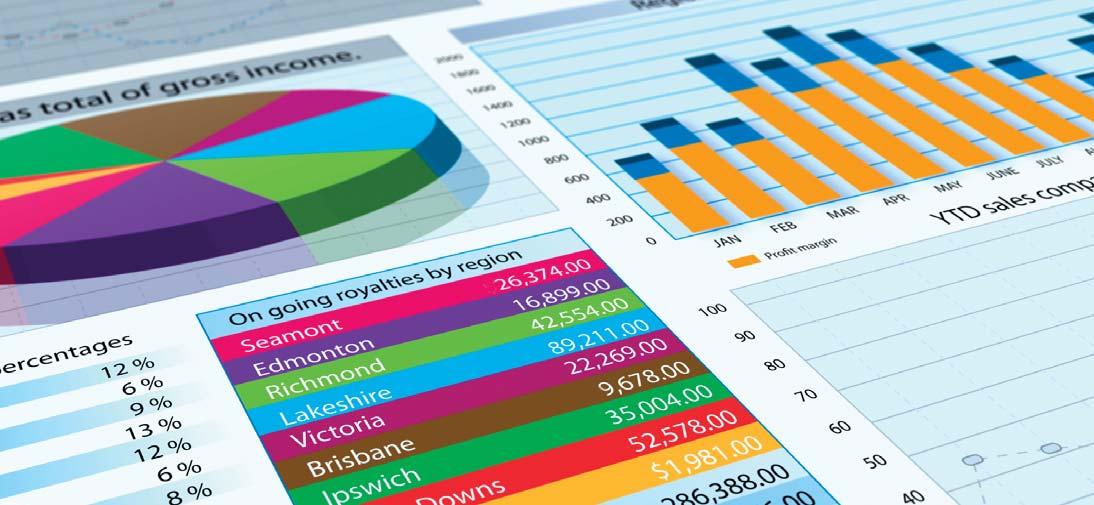
• Unit 3: Business Decisions and Strategy
Students develop their understanding of the concepts introduced in unit 2 and explore influences on business strategy and decisionmaking.
• Unit 4: Global Business
Students develop their understanding of the concept introduced in unit 1 and explore business activity in a global context.
Over the course of the year units 1 and 2 will be studied. The year will end with two internal examinations, on each of the units.
Over the final year of study unit 3 and 4 will be studied.
The year will end with three 2 hour external examinations:
Paper 1 - 35% 2 hours
Marketing, People and Global Business. Questions are drawn from unit 1 and 4, and from local, national, and global contexts.
Paper 2 - 35% 2 hours
Business Activities, Decisions and Strategy. Questions are drawn from unit 2 and 4, and from local, national, and global contexts.
Paper 3 - 30% 2 hours
Investigating Business in a Competitive Environment.
Questions are drawn from all units and are based on a pre-released context issued in advance of the examination.
The Business department aims to stimulate interest in how businesses work, at individual, national and global level. Students choosing A Level Business develop a number of key skills:
•Use language, numbers and ICT to assist them in communicating business ideas;
• Critically examine the aims, objectives and practices of business organisations from their economic, environmental and social perspectives
• Understand the methods and language used for decision-making in business organisations
• Examine the implications of complex and changing situations in business
• Understand and interpret information in verbal, numerical and graphical format and present findings through written communication and with the use of ICT
• Develop personal qualities such as initiative, self-confidence and independence
• Build people, communication, planning and teamworking skills
• Develop knowledge and skills relevant to the business world through practical participation in a range of business activities
• Develop a range of techniques, personal skills and attributes essential for successful performance in working life.
The department believes in providing students with real business experience and the 'Young Enterprise' programme allows them to set up and run their own business. This is a very popular activity and links topics learnt in the classroom with real life scenarios.
A Level Business students are provided with the opportunity to go to the London Stock Exchange to experience trading and tour the London offices, bringing the theory learnt in the classroom to life.
Entries for Business Studies at university are growing extremely rapidly. This reflects its relevance to almost any career and its value to those progressing to higher education. Business Studies will be an asset to those interested in starting their own business and to students pursuing degrees in Business Studies, Accountancy, Marketing, Sales, Finance, Commerce, Personnel Management, Banking, Actuarial work, Business Management, Human Resource Management, Business Development, Business Strategy and Business with ICT and Economics.
Head of Department
Mr K Fry
Email: kfry@stedmundscollege.org
‘These technologies can make life easier, can let us touch people we might not otherwise.... These things can profoundly influence life!’
Steve Jobs
OCR
Course breakdown
Computer Science is a practical subject where students can apply the academic principles learned in the classroom to the real-world systems. It is an intensely creative subject that combines invention and excitement, and looks at the natural world through a digital prism.
Over the two years, two topics will be studied:
•Computer Systems: This topic will introduce students to the internal workings of the Central Processing Unit (CPU), the exchange of data and will also look at software development, data types and legal and ethical issues. It is expected that they will draw on this underpinning content when studying computational thinking, developing programming techniques and devising their own programming approach in the programming project component.
•Algorithms and Programming: This topic will incorporate and build on the knowledge and understanding gained in the Computer Systems topic.

Students are no longer sitting an AS Level at the end of the first year, however they will sit a stringent end of year examination in the first year of the A Level.
There are three assessments at the end of Rhetoric II. Two written 2.5-hour assessments:
Paper 1 - 40% 2.5 hours
Computer Systems
This paper will assess students’ understanding of Computer Systems topic.
Paper 2 - 40% 2.5 hours
Algorithms and Programming
This paper will cover the Algorithms and Programming topic.
The final assessment is a coursework unit:
Programming Project - 20% Students will produce a solution for a computing problem to work through according to the guidance of the specification. Students will apply their knowledge and understanding of the theoretical framework and digital convergence.
Students learn to:
•Look at ICT from a wider viewpoint
•Understand the impact of ICT as an individual and from an organisation’s point of view
•Show that they appreciate the use of ICT in large and small organisations
•Learn how to create a relational database system in MS Access.
Students in the past have had the opportunity to work with younger students to develop their confidence and skills. We offer a number of IT/Computer Science-related Period 7 clubs over a number of days including the Computer Club in which we use Raspberry Pi computers and Python. Students are also taught to use the programmes like Scratch, Gamemaker & App Inventor to create Apps and computer games. This year we will also run a Dreamweaver Website design activity.
A qualification in Computer Science is valuable and can lead to a range of opportunities both in employment and Higher Education.
Computer Science is a constantly changing subject and many students find this exciting.

Email: ahealy@stedmundscollege.org
AQA
Course breakdown
This creative and thought provoking qualification gives students the practical skills, theoretical knowledge and confidence to succeed in a number of careers, especially those in creative industries.
Students will investigate historical, social, cultural, environmental and economic influences on design and technology, whilst enjoying opportunities to put their learning in to practice by producing prototypes of their choice.
Students will gain a real understanding of what it means to be a designer, alongside the knowledge and skills.

‘Have nothing in your house that you do not know to be useful, or believe to be beautiful.’
William Morris
The first year of study will consist of a range of smaller projects aimed at developing knowledge and understanding of design principles, while embedding practical skills such as research, drawing and designing, modelling, using a range of materials, tools, equipment and workshop machinery in preparation for the final major project in the final year of study.
The final year will be broken down into three assessments:
Paper 1 - 30% 2.5 hours written
Technical principles
Students are expected to be able to name specific materials for a wide range of applications. They must be able to provide details and justified explanations of why specific materials are suitable.
Paper 2 - 20% 1.5 hours written
Designing and making principles
Students are expected to explain different approaches to user centred design. That in approaching a design challenge there is not a single process, but that good design always addresses may issues.
Non-examination assessment - 50% Substantial design and make project
Practical application of technical principles, designing and making principles. Written or digital design portfolio and photographic evidence of final prototype.
Key skills
•An interest in practical work
•Creativity
•Independent learning
•Initiative
•Problem solving.
Enrichment opportunities
•Rotary Technology Tournaments
•Work experience placements.
Product Design can lead to a Foundation or Degree course in a range of design disciplines and is beneficial to those who intend to pursue a career in design, fashion and textiles, electronic and systems, engineering and construction and food technology.

Head of Department
Mrs N Schiff
Email: nschiff@stedmundscollege.org
Eduqas
Course breakdown
The Drama A-level course is divided into three units split across AS and A2. Assessment for all three is completed at the end of Rhetoric II.
Unit 1: Theatre workshop
Students will be assessed on either acting or design and will participate in the creation, development, and performance of a piece of theatre, this will be based on a reinterpretation of an extract of text chosen from a list supplied by Eduqas.
Unit 2: Text in action
Students will be assessed on either acting or design and will participate in the creation, development, and performance of two pieces of theatre based on a stimulus supplied by Eduqas:

•A devised piece using the techniques and working methods of either an influential theatre practitioner or a recognised theatre company (a different practitioner or company to that chosen for Component 1)
•An extract from a text in a different style chosen by the student.
Students that choose acting, will perform live for the visiting examiner. Students that choose design must give a 5-10 minute presentation of their design to the examiner. All students will then produce a process and evaluation report within one week of completion of the practical work.
Unit 3: Text in performance
Written examination with sections A and B: Students will answer two questions based upon two different texts, one written pre-1956 and one written post-1956. Clean copies (no annotations) of the two complete texts must be taken into the examination.
Section C: A question based upon a specified extract from The Curious Incident of the Dog in the NightTime, Mark Haddon, adapted by Simon Stephens.
Details of the 10–15-minute extract will be released during the first week of March, in the year which the examination is to be taken.
"Drama is life with the dull parts left out."
- Alfred Hitchcock
During the course students will study a range of different theatre practitioners and play texts. Students will need to understand how the social, historical, cultural and political climate influences theatre. Most of all they will need to consider the question: why this play? Why now? Why this audience?
Set text(s) / practitioners that may be explored
Unit 1: Text workshop
•Stanislavski with saved (Edward Bond)
•Brecht with Caucasian Chalk Circle (Brecht)
•Artaud with 4:48 Psychosis (Sarah Kane)
•Kneehigh Theatre with The Red Shoes (Kneehigh)
•DV8 / Frantic Assembly with Girls Like That (Evan Placey)
•Peter Brook with A Midsummer Night’s Dream (Shakespeare)
Unit 2: Text in action
•Metamorphosis (Kafka/ Berkoff)
•Romeo and Juliet (Shakespeare)
•London Road (Alecky Blythe)
•Bouncers (John Godber)
•Find Me (Olwyn Wymark)
•Antigone (Sophocles / Jean Anouilh)
•Cloud Nine (Caryl Churchill)
•Earthquakes in London (Mike Bartlett)
•The Visit (Friedrich Durrenmatt)
•Woza Albert! (Percy Mtwa / Mbongeni Ngema / Barney Simon)
•Frankenstein (Nick Dear)
•Othello (William Shakespeare)
Unit 3: Text in performance
Pre 1956
•The Trojan Women (Euripides)
•As You Like it (William Shakespeare)
•Hedda Gabler (Henrick Ibsen)
Post 1956
•Saved (Edward Bond)
•Racing Demon (Davide Hare)
•Chimerica (Lucy Kirkwood)
•Performance skills
•Creativity and imagination
•Communication
•Textual analysis and interpretation
•Problem-solving
•Working with others
•Independent learning.
•Theatre visits
•A wide range of performance opportunities
•Professional workshops
•Audition coaching
•Opportunity for National Student Drama Festival
•Opportunity to try out for National Theatre Connections Festival.
As well as preparing students who wish to apply to traditional acting and drama schools, the course is also useful for other career paths.
Universities offer Theatre and Drama degrees as single honours or combined courses. Some institutions offer Creative or Performance Arts degrees where theatre can be combined with other arts subjects such as Film, Music, Dance, Art, Design and Photography. Students may also follow careers in stage management, theatre administration and theatre production.
Drama and Theatre skills can be used in education, therapy, community work and in the expanding leisure and media industries. Drama and Theatre develops team skills, empathy and self-confidence, as well as being a strong academic discipline. It nurtures several skills essential for careers outside the arts such as management, for example, or any context in which strong interpersonal skills are important.
Head of Department
Miss E Chilton
Email: echilton@stedmundscollege.org
‘There is no such thing as a free lunch’ – a much quoted phrase that, according to some, is the idea ‘at the core of economics’.
Edexcel (9EC0)
The Economics A-level course is divided into four units split across AS and A2.
Unit 1: Introduction to Markets and Market Failure
Students are introduced to microeconomic concepts.
Students are introduced to macroeconomic concepts.
Unit 3: Business Behaviour and the Labour Market
Students develop their understanding of the concepts introduced in unit 1 and focus on business economics.

Unit 4: A Global Perspective
Students develop their understanding of the concept introduced in unit 2 and apply these to global context.
Over the course of the year units 1 and 2 will be studied. The year will end on two internal examinations, on each of the units.
Over the final year of study unit 3 and 4 will be studied.
The year will end on three 2 hour external examinations:
Paper 1 - 35% 2 hours written Markets and Business Behaviour
Questions are drawn from unit 1 and 3 and assesses Microeconomics.
Paper 2 - 35% 2 hours written
The National and Global Economy
Questions are drawn from unit 2 and 4 and assesses Macroeconomics.
Paper 3 - 30% 2 hours written
Microeconomics and Macroeconomics
Questions are drawn from all units.
The Economics department aims to stimulate interest in key issues in the news affecting everyday life. Our goal is to allow students to understand the forces driving the price of oil, exchange rates and the level of unemployment in an economy.
Choosing A Level Economics gives students the opportunity to develop a number of key skills including:
•Their ability to use language, numbers and ICT to assist them in the analysis of the economy
• Practical presentation skills in analysing the impact of events on economies worldwide
• Understanding the methods and language used in economic contexts
• Examining the implications of complex and changing dynamics
• Understanding and interpreting information in verbal, numerical and graphical format and presenting findings using written communication and ICT
• Personal qualities such as initiative, selfconfidence and independence
• People, communication, planning and teamworking skills
• Knowledge and skills relevant to the economic world through practical participation in a range of activities
• Techniques, personal skills and attributes essential for successful performance in working life.
The department believes in providing students with a variety of opportunities to enhance their Economics interests. This is achieved through class projects, study groups and organised competitions. The aim is to ensure that the students have several opportunities for social interaction and networking with students, faculty, and alumni.
A Level Economics students are provided with the opportunity to go to the London Stock Exchange and experience real life trading, which, with a tour of the London offices, brings theory learnt in the classroom to life.
A Level Economics can lead into a variety of differing career areas as students learn a variety of transferable skills including collecting and analysing economic information from different sources, developing written communication skills and problem-solving ability. While these will be valuable for many university courses, Economics will particularly support the higher education required to become an economist.
Economics links closely with the finance sector including banking, accountancy, tax advice, actuarial work, investment banking, financial analyst roles, management consultancy, insurance and trading. Economics can also lead to roles in the management, marketing, journalism, sales and advertising, human resource management, ICT and education sectors.
English
Head of Department
Mr A Hay
Email: ahay@stedmundscollege.org
The language of Shakespeare and Milton, English lies at the heart of civilisation and its literature defines what it means to be human.

CIE Cambridge International
Course breakdown
Over the course of the two years, four topics will be studied.
Rhetoric I
Papers 1 and 2 will be studied, both having 2-hour external assessments, taken during the first year of study.
Paper 1 - Drama and Poetry
50% of AS Level - 25% of A Level 2 hours written
Paper 2 - Prose and Unseen
50% of AS Level - 25% of A Level
2 hours written
Papers 3 and 4 will be studied, both having 2-hour external assessments, taken during the second year of study.
Paper 2 - Shakespeare and Drama
25% of A Level
2 hours written
Paper 3 - Pre and Post 1900 Poetry and Prose
25% of A Level
2 hours written
Across their time on the course, students will study a variety of genres and will need to be familiar with their historical, political and social contexts. Below, are some examples of set texts on the syllabus; these change after a few years.
Prose
Ian McEwan - Atonement
Mark Twain - The Adventures of Huckleberry Finn
Ngũgĩ wa Thiong’o - Petals of Blood
Poetry
Robert Browning - Selected Poems
Simon Armitage - Sir Gawain and the Green Knight
Gillian Clarke - Selected Poems
Drama
Tennessee Williams - Cat on a Hot Tin Roof
William Shakespeare - Measure for Measure
Wole Soyinka - The Trials of Brother Jero and Jero’s Metamorphosis
Thomas Middleton and William Rowley -The Changeling
All students are taught the need for technical accuracy and attractive presentation. They are trained to deploy a range of persuasive and rhetorical devices in order to effect the clear exposition of an argument, both verbally and in writing. The ability to develop, debate and defend an informed opinion is a crucial element of our studies.
Co-curricular events and activities such as visiting authors, specialist speakers, reading competitions, inter-house drama and theatre trips supplement and enhance the work in the classroom.
We aim to instill in our students a love of literature and reading and to give them the facility to express themselves confidently, fluently and accurately in their analytical writing. By studying great authors both past and present, students will be able to assess and appreciate literary texts by placing them within the context of 1000 years of English literary heritage.
We believe that the study of English fosters a student's personal, moral and intellectual development. Our aim is to produce sensitive, confident, cultured individuals who are able to discriminate effectively, identify key qualities and values then express their judgements cogently in both written form and orally. Above all, we believe that English should be innovative and challenging; a subject that students look forward to and enjoy.
The study of English is key to the pursuit of any number of professions and careers requiring flexible and sophisticated communication skills, including law, journalism, marketing, teaching and publishing.
Head of Department
Mr Mr P Bittles
Email: pbittles@stedmundscollege.org
AQA
The course covers two topics – Physical Geography and Human Geography, being studied in both years. The breakdown of each topic is as below:
Unit 1 - Physical Geography
•Water and Carbon Cycles
•Coastal Systems and Landscapes (optional)
•Natural Hazards
Unit 2 - Human Geography
•Changing Places
•Global Systems and Governance
•Contemporary Urban Environments

‘What other subject tells us so much about the great issues of the age - Global change, natural and human?’ Professor Andrew Goudie, University of Oxford
At the end of Rhetoric I there will be three internal assessments
Unit 1 Physical Geography
Paper 1 - 33.33% 1 hour written
The Water and Carbon Cycles
Unit 2 Human Geography
Paper 2 - 33.33% 1 hour written
Changing Places
Unit 2 Human Geography
Paper 3 - 33.33% 1 hour written
Contemporary Urban Environments
At the end of Rhetoric II there will be three external assessments.
Unit 1 Physical Geography
Paper 1 - 40% 2.5 hours written
The Water and Carbon Cycles, Coastal Systems and Landscapes, and Hazards
Unit 2 Human Geography
Paper 2 - 40% 2.5 hours written
Global Systems and Global Governance, Changing Places and Contemporary Urban Environments
One fieldwork investigation - 20% 3,000-4,000 words
Key skills
•Map reading
•Cartographic design
•Graphic and diagrammatic design
•Statistical analysis
•Team work through fieldwork
•Decision making
•Analysis and evaluation
•Simulation
•Discussion and debate.
Geography would not be the living, vibrant subject it is without fieldwork. In recent years we have run residential field trips, linked to A Level topics, to Iceland, the Dolomites in Northern Italy and Chamonix. In the last academic year a five day joint field trip with the Biology department was organised to the Isle of Arran in order to study fluvial processes, local conflict issues linked to energy and tourism, and plate tectonics.
The St Edmund’s College Geography Society meets and discusses matters of recent geographical interest, the members have the chance to use and experiment with the wave tank. Here they can simulate coastal landscapes and evaluate defence strategies designed to protect against coastal erosion. What they observe and discuss here can be linked to local conflicts over coastal protection options.
The pace of work over the two-year course is intense, with an extensive piece of work set every week on one of the topics. The high standard of teaching coupled with students’ genuine interest in the topics studied mean that many are keen to pursue the subject further, either as single honours or in a joint degree course.
Mr C Berkley
Email: cberkley@stedmundscollege.org
OCR
The course covers three topics over the two years of study. There will be four assessments which will be taken at the end of Rhetoric II. Topics to be studied below:
British Period Study and Enquiry: Anglo-Saxon England and the Norman Conquest (1035-1087)
•Anglo-Saxon England 1035–1066
•William of Normandy’s invasion and the Battle of Hastings 1066
•William I and the consolidation of power

•William I and the government and administration of England
•William II ‘Rufus’ and the consolidation of power and government
•William II ‘Rufus’ and the Church
•The death of William II ‘Rufus’ and the succession of Henry to 1107 William’s return to England in 1099
‘If men could learn from history, what lessons it might teach us. But passion and party blind our eyes….’ Samuel Taylor Coleridge 1772 – 1834.
Non-British Period Study: Philip II 1556-1598
•Political authority
•Religion
•Foreign Policy
•The Netherlands
Thematic Study and Historical Interpretations: Rebellion and Disorder under the Tudors
1485–1603
•The main causes of rebellion and disorder
•The frequency and nature of disturbances
•The impact of the disturbances upon Tudor governments
•The maintenance of political stability
•Pilgrimage of Grace
•The Western Rebellion
•Tyrone’s Rebellion
The four assessments are as follows:
British Period Study and Enquiry - 25%
1.5 hour written
The enquiry is a source-based study which immediately precedes or follows the outline period study.
Non-British period study - 15%1 hour written
Thematic Study and Historical Interpretations40%2.5 hours written
Learners will develop the ability to treat the whole period thematically, and to use their detailed knowledge of the depth study topics to evaluate interpretations of the specified key events, individuals or issues.
Non-exam Assessment Topic Based Essay - 20% Students will complete a 3000–4000-word essay on a topic of their choice, which may arise out of content studied elsewhere in the course. This is an internally assessed unit group. A Title(s) Proposal Form must be submitted to OCR using the Title(s) Proposal tool.
Students will learn how to select information and understand the cause and consequence of events. They will learn to synthesise different arguments and that differing perspectives can be valid, but must learn to make decisions about which views they credit the most. They become skilled at analysing documents and decide upon their reliability and usefulness in relationship to specific questions. Most fundamentally, students learn how to structure and support an argument.
•Attendance at the Cambridge History Forum
•Guest lecturers from university to enhance subject knowledge and give tasters of tertiary education.
History can be studied as a single subject and combined with many other courses at university. With many varied history courses, students can choose what kind of history and what periods they wish to study.
History is useful in a variety of careers. Those directly related to the subject are obvious: teaching, museum work and the heritage industry. Numerous employers base its usefulness on the fact that history is at its base level decision-making based upon limited amounts of information. The legal profession uses many of the same skills as the historian and the decision-making skills developed are also valued by the police, the military, accountancy firms and larger businesses. Many librarians and archivists have a background in history, as do journalists.
Head of Departments
Head of Languages - Mrs E Gambino
Email: egambino@stedmundscollege.org
Head of French – Mrs F Harvey-Keenan
Email: fharveykeenan@stedmundscollege.org
Head of German – Mrs J Gardner
Email: jgardner@stedmundscollege.org
Head of Spanish –Mrs E Gambino
Email: egambino@stedmundscollege.org
Eduqas
Course breakdown
Please see the themes studied during the two years below:
•Being a young person in French/German/Spanish speaking society
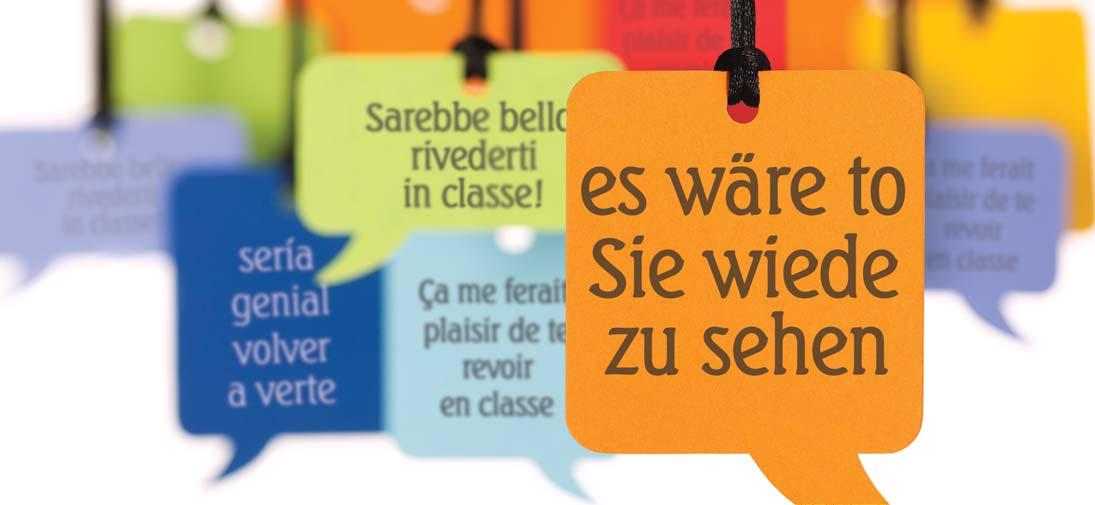
•Understanding the French/German/Spanish speaking world
•Diversity of difference (French/German/Spanish)
French
France 1940-1950: The Occupation and Post-war years
German
The making of modern Germany: 1989 onwards
Spanish
The two Spains: 1936 onwards
Assessment for all three units is completed at the end of Rhetoric II. This means students will not complete AS Level, however students will sit an internal assessment at the end of Rhetoric I.
‘If you talk to a man in a language he understands, that goes to his head. If you talk to him in his language, that goes to his heart.’ Nelson Mandela
There are three assessments at the end of Rhetoric II. Two written and one speaking.
Unit 1 - 30% 21-23 minutes
Speaking examination
Task 1
•Presentation of the independent research project - 2 minutes. Students will speak an uninterrupted presentation of a project they have researched independently.
•Discussion on the independent research project9-10 minutes. Students discuss the content of their research project.
Task 2
•Theme based discussion - 5 minutes preparation followed by 5-6 minutes discussion based on a stimulus card comprising an image, a short text and a point for consideration.
Unit 2 - 50% 2.5 hours written
Stimulus material will be in French/German/ Spanish, based on the four themes under the areas of interest:
Social issues and trends and political and/or intellectual and/or artistic culture.
Section A: Listening
Section B: Reading
Section C: Translation of unseen passages from French/German/Spanish into English and from English into French/German/Spanish
Unit 3 - 20% 2 hours written
Critical and analytical response in writing
Students will write an essay of approximately 300 words on each of the two works they have studied. One essay will be based on a film and the second on a literary work. Both are chosen from the prescribed list. Students will have a choice of two questions for each literary work and film.
•Lesson delivery almost entirely in the target language;
• Opportunities to participate in language-based activities to develop skills;
• Encourages fluent and competent use of target language, which is enhanced by individual lessons with a language assistant;
• Deepens cultural understanding and awareness of target language country and its social issues;
• Enhances and develops independent study and communication skills through target language presentations to peers and external visitors resorting, when appropriate, to ICT.
Work experience or home-stay/cultural trips to the target language countries.
Opportunity to take the DELF/DALF (recognised international qualification in French) examination as part of our Period 7 Activities programme.
At university level, languages can be combined with an additional subject such as Business and Finance Management, Economics, Law, Politics, Journalism, Tourism, etc., for enhanced career prospects.
A wide range of professions are open to you, from traditional ones such as translating, interpreting and education, to any career with an international dimension, such as Business and Banking, International Law and Advertising, Public Relations, the Military or any other profession linked to the subjects listed above.

Head of Department
Mrs H Fraser
Email: hfraser@stedmundscollege.org
Edexcel
Course breakdown
There are 3 2-hour external assessments which are completed at the end of Rhetoric II.
Paper 1 and 2 - 33.33% each 2 hour written Pure Mathematics
This may cover the below topics which will be studied throughout the 2 years.
•Topic 1: Proof
•Topic 2: Algebra and functions
•Topic 3: Coordinate geometry in the (x, y) plane
•Topic 4- Sequences and series
•Topic 5: Trigonometry
•Topic 6: Exponentials and logarithms
•Topic 7 - Differentiation
•Topic 8: Integration
•Topic 9: Numerical methods
•Topic 10: Vectors
‘The things of this world cannot be made known without a knowledge of Mathematics’.
Roger Bacon
Statistics and Mechanics
This may cover the below topics which will be studied throughout the 2 years.
Section A Statistics
•Topic 1: Statistical Sampling
•Topic 2: Data Presentation and Interpretation
•Topic 3: Probability
•Topic 4: Statistical Distributions
•Topic 5: Statistical Hypothesis Testing
Section B Mechanics
•Topic 6: Quantities and Units in Mechanics
•Topic 7: Kinematics
•Topic 8: Forces and Newton’s Law
•Topic 9: Moments
Key skills
While studying Mathematics you will be expected to:
•Use mathematical skills, arguments and logic to solve problems
•Understand and demonstrate what is meant by proof in mathematics
•Simplify real-life situations so that mathematics can be used to show what is happening and what might happen in different circumstances
•Apply mathematics to solve problems presented in a real-life context
•Use calculator technology and other resources (such as formulae booklets or statistical tables) effectively and appropriately
•Understand calculator limitations and when it is inappropriate to use such technology.
Our A Level students compete in the annual UK Schools 'Mathematics' Challenges with many students each year gaining awards at Gold, Silver and Bronze levels.
We also send a team of students to London to compete in the National UKMC Competition, ‘Enterprising Mathematics’ where all their newly-found mathematical skills can be put to practical use.
Post GCSE Mathematics is a valuable supporting subject to many courses in Rhetoric and at degree level, especially for the sciences and Geography, Psychology, Sociology and Medical courses.
A mathematics qualification is a much soughtafter qualification for entry to a wide variety of full-time courses in higher education and careers including: Economics, Medicine, Engineering, Architecture, Accountancy, Teaching, Physics, Computing and IT, Psychology.
Head of Department
Mrs H Fraser
Email: hfraser@stedmundscollege.org
Edexcel
Course breakdown
Over the two years, this course covers 9 topics:
•Topic 1: Proof
•Topic 2: Complex Numbers
•Topic 3: Matrices
•Topic 4: Further Algebra and Functions
•Topic 5: Further Calculus
•Topic 6: Further Vectors
•Topic 7: Polar Coordinates
•Topic 8: Hyperbolic Functions
•Topic 9: Differential Equations
There are 3 external assessments which are completed at the end of Rhetoric II.
Paper 1 and 2 - 25% each 1.5 hours written
Core Pure Mathematics
May contain questions on any topic from the Pure Mathematics content. Calculators can be used in the assessment.
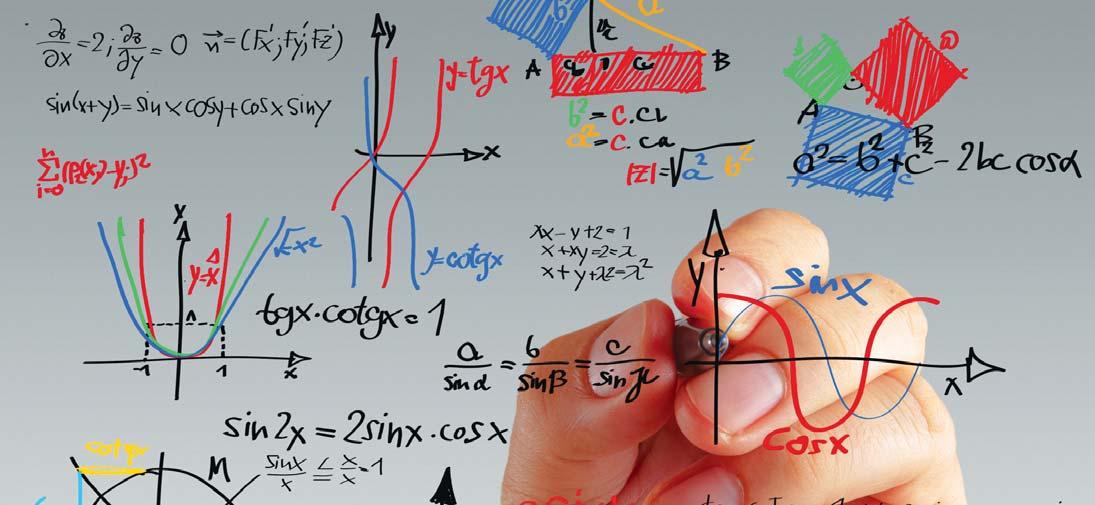
The final paper students can choose one of two options:
Option one
Paper 3 - 25% 1.5 hours written
Further Mathematics
Students can take on one of the following options:
•Further Pure Mathematics 1
•Further Mechanics 1
•Further Statistics 1
•Decision Mathematics 1
Option two
Paper 3 - 25% 1.5 hours written
Further Mathematics
Students can take on one of the following options:
•Further Pure Mathematics 2
•Further Mechanics 1
•Further Statistics 1
•Decision Mathematics 1
•Further Statistics 2
•Further Mechanics 2
•Decision Mathematics 2
Further Mathematics requires the same key skills as for Mathematics, namely:
•Use mathematical skills, arguments and logic to solve problems
•Understand and demonstrate what is meant by proof in mathematics
•Simplify real-life situations so mathematics can be used to show what is happening and what might happen in different circumstances
•Use calculator technology and other resources (such as formulae booklets or statistical tables) effectively and appropriately.
A Level Rhetoric students compete in the annual UK Schools 'Mathematics' Challenges with many students gaining awards at Gold, Silver and Bronze levels. We also send a team of students to London to compete in the National UKMC Competition, ‘Enterprising Mathematics’, putting their mathematical skills to practical use.
Post GCSE Mathematics is a valuable supporting subject to many courses in Rhetoric and at degree level, especially for the sciences and Geography, Psychology, Sociology and Medical courses.
People entering today’s most lucrative sectors such as IT, banking and the stock market need to be confident using mathematics on a daily basis and many employers still look for a traditional Mathematics A Level qualification. Even where pure Mathematics is not required, other mathematics skills learned at A Level, such as logical thinking, problem solving and statistical analysis, are considered desirable in the workplace.
Head of Department
Mr A Hay
Email: ahay@stedmundscollege.org
Eduqas
Course breakdown
The course is predominantly structured around a framework of four theoretical concepts, each of which the students must apply to their studies of different media platforms and products.
•Media Language
•Media Representation
•Media Industries
•Media Audiences
There are three assessments for this course which will be completed at the end of Rhetoric II; two written and coursework. However, students will sit an internal assessment at the end of Rhetoric I.
Paper 1 - 35% 2.25 hours
Media Products, Industries and Audiences

•Task 1: Analysing Media Language and Representation
•Task 2: Understanding Media Industries and Audiences
A subject for the 21st century; an exploration of how messages are created, conveyed and construed in the digital age.
Paper 2 - 35% 2.5 hours
Media Form and Products in Depth
•Task 1: Television in the Global Age
•Task 2: Magazines: Mainstream and Alternative Media
•Task 3: Media in the Online Age
Coursework - 30% Cross-Media Production
The coursework unit consists of an individually produced cross-media production, across two forms (print & audiovisual) in response to a choice of briefs set by the exam board. Students must apply their knowledge and understanding of the theoretical framework and digital convergence.
Key skills
Technical skills:
•Photography
•Cinematography
•Full training with state of the art equipment
•Publishing (Adobe InDesign)
•Photo editing (Adobe Photoshop)
•Video editing (Final Cut Pro X).
Personal skills:
•Independent learning
•Media literacy
•Academic research and referencing
•Textual analysis and deconstruction
•Essay writing
•Ability to debate and discuss issues.
This vibrant department has strong involvement with St Edmund’s activities programme. It supports the student newspaper, which is an entirely student led project that offers an insight into College life through the eyes of the students. There are many further opportunities for students to involve themselves in film production and video editing. The department also continues to explore the benefits of running regular educational trips, having previously visited the BFI, BBFC and New York City.
Whilst the media industry remains a competitive one for young people, it is by no means impossible, and indeed a successful career is achievable with the right level of commitment and motivation. A Media Studies A Level qualification can act as a pathway to all manner of Higher Education courses. The diverse nature of the course allows students to progress to academic Media Communications and Social Science degrees, as well as more practical based routes, for instance Media Production or Digital Media Practice. These would allow students to progress to careers which include Journalism, Marketing, Public Relations and Television Production.
Head of Department
Ms D Wainwright
Email: dwainwright@stedmundscollege.org
From the chapel to the concert platform, music uplifts the mind, body and spirit.
AQA
Over the course of two years, students will study a selection of the topics below:
•Topic 1 (compulsory): Western Classical Tradition 1650 – 1910
Students will then pick two of the following:
•Topic 2: Pop Music
•Topic 3: Music for Media
•Topic 4: Music for Theatre
•Topic 5: Jazz
•Topic 6: Contemporary Traditional Music
•Topic 7: Art Music since 1910
Assessment for all three components is completed at the end of Rhetoric II. At the end of Rhetoric I, students will complete internal assessments.
The three assessments are broken down to written, performance and composition.
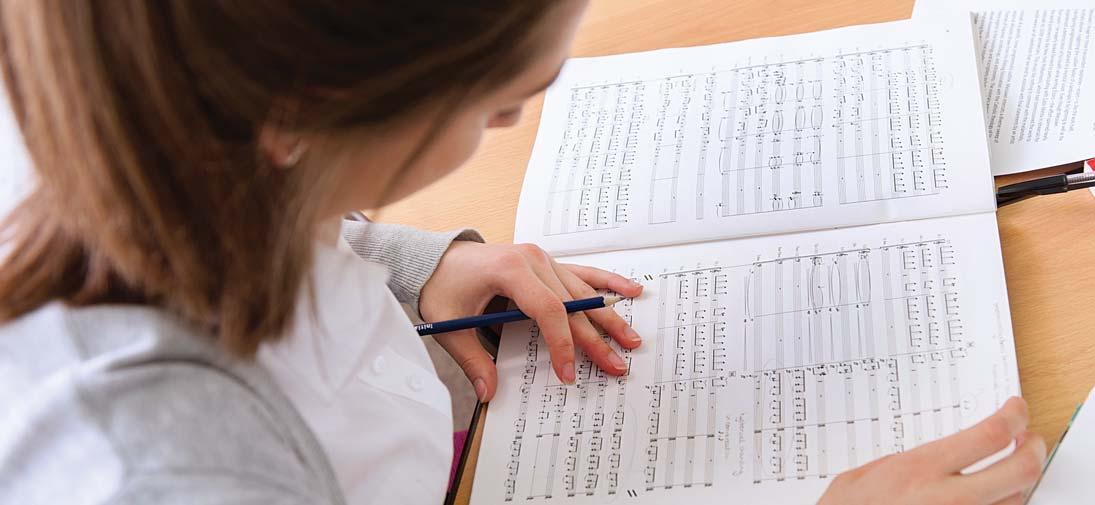
Component 1 - 40% 2.5 hour written
Appraising music: listening, analysis and contextual understanding.
•Section A: Listening: Students must answer three sets of questions in this section. They are assessed on their ability to analyse and evaluate the music heard in the exam and demonstrate knowledge and understanding of musical elements and musical language to make critical judgements.
•Section B: Analysis: In this section students will be required to answer two sets of linked questions on two extracts of the set works from topic 1: Western Classical Tradition 1650–1910. Students will be able to access the excerpts relevant to their options digitally on an individual basis.
•Section C: Essay: Students will be required to answer one essay question on one area of study from a choice of topics 2-7.
Component 2 - 35% performance
A solo and/or ensemble performance as an instrumentalist, or vocalist and/ or music production.
Component 3 - 25% composition
One composition must be in response to an externally set brief and the other composition is freely composed. Together, the compositions must last a combined minimum time of four and a half minutes. Students will be able to choose from seven externally set briefs, which may include stimuli such as a poem or a piece of text, photographs, images or film or notation. The free composition need not reference any brief or area of study.
The A Level units build directly upon the foundations laid in GCSE Music.Specific skills required are:
•High level of performance in one instrument or voice (Grade 6 at Rhetoric I and Grade 7+ at Rhetoric II)
•Good composition skills.
St Edmund’s offers many opportunities for solo and ensemble performances in recitals, concerts and masses. Rhetoricians’ musical experience and ability is essential in maintaining a high standard of performance in our many ensembles such as Orchestra, Jazz Band, Schola Cantorum and Senior Choir. As leaders, they will also organise the House Music competition.
The course equips students to study Music in higher education and pursue a music-related career, as well as developing a lifelong appreciation and enjoyment of music.
Rhetoric Music students at St Edmund’s have progressed on to take Music, Music Technology and Music Engineering as a degree, leading to working in the music industry performing, recording and teaching. Music students taking different degree subjects participate in the musical life at universities and beyond. Outstanding musicians may qualify for higher education choral and organ scholarships.
Head of Department
Mr K Jones
Email: kjones@stedmundscollege.org
This exciting multidisciplinary subject looks at contemporary sporting issues, how the body works and how the mind can affect performance.
OCR
Course breakdown
The purpose of this course is to give students the opportunity to improve their knowledge and personal skills in the sports and exercises of their choice. In doing so they will also learn about how best to prepare body and mind to maximise performance, as well as gaining an insight into sports in a historical and comparative sense.
The content for this course is divided into the four topics below:
•Topic 1: Physiological Factors Affecting Performance
•Topic 2: Psychological and Socio-cultural Themes in PE
•Topic 3: Socio-cultural and Contemporary Issues
•Topic 4: Performance within Physical Education

Students will be internally assessed during Rhetoric I and then four external assessments at the end of Rhetoric II.
Paper 1 - 30% 2 hour written
Physiological Factors Affecting Performance
Paper 2 - 20% 1 hour written
Physiological Factors Affecting Performance
Paper 3 - 20% 1 hour written
Socio-cultural Issues in Physical Activity and Sport
Non-exam Assessment - 30% Performance / Coaching
The Evaluation and Analysis of Performance for Improvement.
The purpose of A Level Physical Education is to give students the opportunity to improve their knowledge and personal skills in the sports and exercises of their choice. In doing so they will also learn about how best to prepare body and mind to maximise performance, as well as gain insight into sports in a historical and comparative sense.
Students are offered a vast array of enrichment activities to develop and broaden their skills. These include:
•The Duke of Edinburgh Award at all levels
•Coaching courses for students to become leaders and opportunities to teach/coach in the Prep School
•District and County competitions in a range of sports
•First Aid and Lifesaving courses
This course is suitable for anyone who has an interest in sport, and is a good foundation for anyone intending to study a HE course connected with the huge and expanding sport and leisure industry.
There is a plethora of career prospects in the world of sport including teaching, physiotherapy, sports administration, medicine, sports journalism, sports management, sports psychology and coaching. In addition, the combination of PE theory and practice means it can provide a natural link to scientific and humanities courses, such as Biology, Psychology, History and Economics.
Head of Department
Mr C Barkham
Email: cbarkham@stedmundscollege.org
Edexcel
Course breakdown
The course covers three topics over the two-year period. With three assessments at the end of Rhetoric II. The topics are covered below:
Topic 1 - 33.3% 2 hours
UK Politics
There are two sections within this topic:
•UK Government
•Core Political Ideas
This topic aims to explain the process of political participation in its various forms and emphasise that democracy is a process and not simply an event. It also examines the three core political ideas that impinge upon mainstream British politics; Liberalism, Conservatism and Socialism.

•Democracy and Participation
•Political Parties
•Electoral Systems
•Voting Behaviour and the Media
•Core Political Ideas
The assessment consists of two sections – Political Participation and Core Political Ideas.
‘History is past politics, and politics is present history’.
E A Freemen 1823 – 1892.
UK Governments and Non-core Political Ideas
There are two sections within this topic:
•UK Government
•Non-core Political Ideas
This topic is fundamental to understanding the nature of UK government, since it enables students to understand where, how and by whom political decisions are made. The topic also gives students a base of comparison to other political systems.
•Parliament
•Prime Minister and Executive
•The Constitution
•Relations between branches
The assessment consists of two sections – UK Government and Non-core Political Ideas.
In this topic students will study global governance and how national and international organisations interact with each other. This will be studied in relation to the following content sections:
•The state and globalization
•Global governance: political and economic
•Global governance: human rights and environmental
•Power and developments
•Regionalism and the EU
The assessment consists of three sections.
Students will learn:
•How to select information and understand the causes and consequences of events
•To synthesise different arguments
•That differing perspectives can be valid
•To make decisions about which views they credit the most
•To demonstrate great flexibility as the changing nature of events means that conclusions reached during the course may be challenged or invalidated by developments.
•Model United Nations.
Politics can be studied as a single subject and combined with many other courses at university.
The successful study of politics can be used to display an interest in the fast-changing world we live in. It can be used to display flexibility in understanding situations from different perspectives. As such, it is a skill-based subject that can make an individual attractive to potential employers. It can also be used as a stepping stone to enhance understanding of and participation in the various communities in which we live.
Head of Department
Mr N Eliasson
Email: neliasson@stedmundscollege.org
Psychology is a subject like no other combining the scientific method with philosophical inquiry.

Course Specification
AQA
Course requirements
Research methods are at the heart of the course and therefore strong levels in Mathematics (6 and above, high 5 if entered at foundation level) and Science (6 and above) are required to study this subject.
Course breakdown
The course is predominantly structured around a framework of three topics:
Introductory topics in Psychology
•Social Influence
•Memory
•Attachments
•Psychopathology
Psychology in Context
•Approaches in Psychology
•Biopsychology
•Research Methods
•Scientific Processes
•Data Handling and Analysis
Issues and Options in Psychology
•Issues and Debates in Psychology
Students will then be taught three topis from the three options below:
Option one
•Relationships
•Genders
•Cognition and Development
Option two
•Schizophrenia
•Eating Behavior
•Stress
Option three
•Aggression
•Forensic Psychology
•Addiction
Each of which will have an assessment and the end of Rhetoric II.
Paper 1 - 33.33% 2 hours
Introductory topics in Psychology
Paper 2 - 33.33% 2 hours
Psychology in Context
Paper 3 - 33.33% 2 hours
Issues and options in Psychology
Key skills
Pupils will need to work in an independent and organised manner. Although the subject matter is often new, this is an opportunity to study a fascinating and stimulating area.
As an extra-curricular activity, students can choose to attend discussion based lessons which explore psychological concepts not covered in the course. Students are encouraged to share ideas and explore how psychological principles can be applied to society. These theories include body language experts, advising politicians, and specialist interviewers interrogating disturbed criminals. There are few areas of our lives today that do not benefit from insight resulting from robust psychological research.
Students considering a degree in Psychology are advised to take a general course accredited by the British Psychological Society at the end of which they can choose a specialism. This can be in clinical, occupational, educational or criminal practice, however, the analytical skills of Psychology graduates are valued by many professions. Higher level insight into human behaviour appeals to employers, such as advertising agencies, and the possibilities really are limitless.
Head of Department
Ms M TownsEmail: mtowns@stedmundscollege.org
Biology is the study of life.
Edexcel
Course breakdown
This course covers 8 topics:
•Topic 1: Lifestyle, Health, and Risk
•Topic 2: Genes and Health
•Topic 3: Voice of the Genome
•Topic 4: Biodiversity and Natural Resources
•Topic 5: On the Wild Side
•Topic 6: Infection, Immunity and Forensics

•Topic 7: Run for Your Life
•Topic 8: Grey Matter
Over the course of the first year of study topics 1-4 will be studied.
There will be two internal 1.5-hour assessment points in the year – November and June, consisting of 70 marks.
The papers may include multiple choice, short responses, calculations, and extended writing questions. They will include questions that target the conceptual and theoretical understanding of experimental work.
Following the internal assessment in June, students will begin work on year 2 material, as well as completing fieldwork in an off-site trip.
During the second year of study, all topics will be studied. This section of study assessment is broken by three papers
Paper 1 - 33.3% 2 hours written
This paper will examine topics 1-6
Paper 2 - 33.3% 2 hours written
This paper will examine topics 1-4, 7 and 8
The papers may include multiple choice, short responses, calculations, and extended writing questions. The paper will include questions that target the conceptual and theoretical understanding on experimental work.
Paper 3 - 33.3% 2 hours written
This paper will examine topics 1-5, 7 and 8
The pre-released scientific article will underpin on section of the paper and will include synoptic questions that may draw on two or more different topics. The paper will include questions that target the conceptual and theoretical understanding on experimental work.
•Practical skills
• An enquiring mind
• Ability to pay attention to detail
• Aptitude for Mathematics and statistics
• The ability to manipulate and apply key concepts.
•Gel Electrophoresis workshop by Edvotec
• Lectures on advances in Biology in London
• Field studies around the College grounds
• ‘DNA in a necklace’ workshop
• Gap Medics day workshop during UCAS week
• GlaxoSmithKline work experience opportunities.
The study of Biology opens up a wide range of career choices and combines well with a number of other subjects. Biology A Level is a necessary requirement for a number of degree courses including medicine, veterinary science, forensic science, dentistry, physiotherapy, biochemistry, pharmacy and environmental science.
Head of Department
Ms M TownsEmail: mtowns@stedmundscollege.org
Not just a flash in the pan –usually part of the solution.
OCR
Course breakdown
This course covers 6 topics:
•Topic 1: Development in practical skills in Chemistry
•Topic 2: Foundations in Chemistry
•Topic 3: Periodic Table and Energy

•Topic 4: Core Organic Chemistry
•Topic 5: Physical Chemistry and Transition Metals
•Topic 6: Organic Chemistry and Analysis
Over the course of the first year of study topics 1-4 will be studied.
There will be two internal 1.5-hour assessment points in the year – November and June, consisting of 70 marks.
The papers may include multiple choice, short responses, calculations, and extended writing questions. They will include questions that target the conceptual and theoretical understanding of experimental work.
Following the internal assessment in June, students will begin work on year 2 material, as well as the opportunity to complete independent research.
During the second year of study, all topics will be studied. This section of study assessment is broken by three papers:
Paper 1 - 37% 2.25 hours written
Periodic Table, Elements and Physical Chemistry
This paper will examine all of the topics
Paper 2 - 37% 2.25 hours written
Synthesis and Analytical Techniques
This paper will examine all of the topics
Paper 3 - 26% 1.5 hours written
Unified Chemistry
This paper will examine all of the topics
All three of the papers may include multiple choice, short responses, calculations, and extended writing questions. The paper will include questions that target the conceptual and theoretical understanding on experimental work.
•An aptitude for practical work
•An investigative mind
•Analytical skills
•Mathematical skills.
Enrichment opportunities
•Lectures in London
•‘Spectroscopy in a suitcase’ workshop
•GlaxoSmithKline work experience opportunities.
Chemistry A Level is a necessary requirement for a number of degree courses including medicine, veterinary science, forensic science, dentistry, physiotherapy, biological sciences, pharmacy and environmental science. It can also provide breadth of study for application to Law and business-related degrees.

Head of Department
Ms M Towns
Email: mtowns@stedmundscollege.org
Physics is everything, everything is physics.
OCR
Course breakdown
This course covers 6 topics:
•Topic 1: Development of practical skills in physics
•Topic 2: Foundations of Physics
•Topic 3: Forces and motion
•Topic 4: Electrons, waves and Photons
•Topic 5: Newtonian world and astrophysics
•Topic 6: Particles & Medical Physics

Over the course of the first year of study topics 1-4 will be studied.
There will be two assessment points in the yearNovember and June. Assessments will be 1.5 hours.
The papers may include multiple choice, short responses, calculations, and extended writing questions. The papers will also include questions that target the conceptual and theoretical understanding of experimental work.
Following the internal assessment in June, students will begin work on year 2 material, as well as completing an independent Research project.
During the second year of study, all topics will be studied. This section of study assessment is broken by three papers
Paper 1 - 37% 2.25 hours written
Modelling in Physics
This paper will examine all of the topics.
Paper 2 - 37% 2.25 hours written
Exploring Physics
This paper will examine all of the topics
Paper 3 - 26% 1.5 hours written
Unified Physics
This paper will examine all of the topics
All three of the papers may include multiple choice, short responses, calculations, and extended writing questions. The paper will include questions that target the conceptual and theoretical understanding on experimental work.
•Enquiring mind
•Aptitude for Mathematics and problem solving
•Analytical and evaluative skills
•Application of theoretical models.
•Visit to the Engineering Department at Hertfordshire University
•Visit to CERN, the European Organisation for Nuclear Research, Geneva
•Lectures and events run by physics education groups in and around Hertfordshire
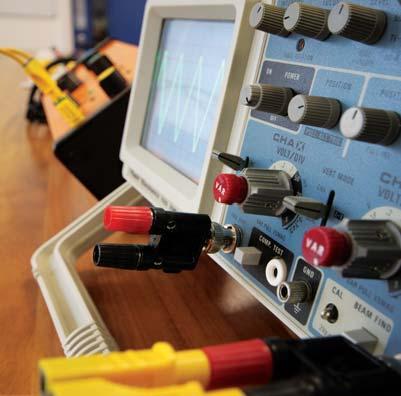
•Lectures from university admission tutors.
Physics A Level is a necessary requirement for a number of degree courses including Engineering and Physics. It is also a very useful A Level for medicine, veterinary science, forensic science, dentistry, physiotherapy and sports science. It can also provide breadth of study for application to Law and business-related degrees.
Head of Department
Mrs A Moloney
Email: amoloney@stedmundscollege.org
Socrates (469 BCE – 399 BCE)
Edexcel
Course breakdown
The topics will be studied in this course are below:
Philosophy
•Religious Language – uses and purpose
•The Verification and Falsification Principles
•The Uses of Symbol, Analogy and Myth to express human understanding of God
•Religious Experience
•The concept of Revelation
•The Attributes and Nature of God
•Life after Death – The Soul: Death, Resurrection and Reincarnation
•The views of various philosophers and theologians including St. Thomas Aquinas, Plato, Aristotle, J Hume, A J Ayer, A Flew, L Wittgenstein, P Tillich.
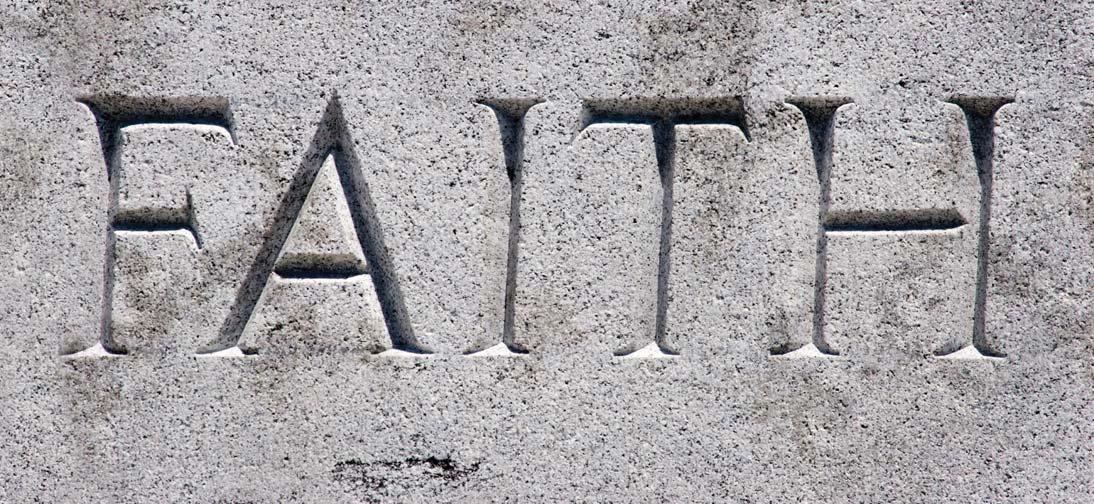
‘Philosophy begins with wonder’
Ethics
•Meta-Ethics – the use of ethical language and the ways in which different scholars understand how words like good, bad, right and wrong are used when ethical statements are made.
•Virtue Ethics – The concepts of the Eudaimonia and the Golden Mean
•Applied Ethics and Ethical Theories:
•Natural Law, Kantian Ethics, Utilitarianism, Religious Ethics,
•Environmental Ethics – The Gaia Hypothesis, Resources and Species
•Gender and Equality – rights
•Sexual Ethics – premarital, extramarital sex, contraception, homosexuality
•The Sanctity of life: Beginning and Ending of Life: Abortion and Euthanasia
•The views of various philosophers and theologians including St. Thomas Aquinas. P Singer, P Vardy, J Fletcher, J S Mill, J Bentham.
Christianity
•Challenging the nature and authority of God, the Trinity, the Church and key Christian moral principles
•The diversity of practice in the Eucharist and in creative expressions of religious identity
•Exploring Christianity and Science, Secularisation and new movements in Theology today
•Exploring the atonement theory and the ideas of Karl Barth and John Hick.
Over two years three topics will be studied with three 2-hour assessments at the end of Rhetoric II.
Paper 1 - 33.33%
Philosophy of Religion
Paper 2 - 33.33%
Religion and Ethics
Paper 3 - 33.33%
Christianity
Students of Religious Studies will develop the following skills:
•Analysis and critical judgement: the ability to examine, assess and justify arguments and points of view
•Research: the ability to identify, evaluate and combine relevant information from a range of sources
•The ability to work with abstract, conceptual ideas, to ‘understand both sides’ and negotiate and resolve conflicting viewpoints and approaches
•Problem-solving skills, especially in relation to ethical dilemmas
•The ability to communicate effectively through discussions, debates, presentations and essays
•An understanding of the impact of conflicting ideologies and values
•An appreciation of human diversity, belief systems, cultural and spiritual experiences.
•To experience the rich Catholic heritage and traditions of England’s oldest Catholic school
•A Level Religious Studies conference at Cambridge.
The Study of Theology will complement and support the study of Humanities.
• It can contribute to the development of the whole person
• The student will develop transferable skills
• Former pupils have gone onto study a range of subjects at University including: Law, English, Politics, History, Philosophy, Theology, Psychology and Criminology, Sociology and many others including jobs in the Police force, Nursing and Teaching.
Head of Department
Miss Z HibbertEmail: zhibbert@stedmundscollege.org
IELTS stands for International English Language Testing System. It is an examination which assesses and demonstrates international students’ ability to use and understand academic English.

Universities usually include an IELTS grade as part of their conditional offers to international students.
IELTS scores go from 1-9, in increments of 0.5. The higher the number the better. The score that a university will ask for depends on two things:
•The prestige and quality of the university
•The type of course
The listening examination
Lasts for 40 minutes. It is divided into 4 parts, and involves listening to lectures and conversations.
The writing examination
Takes one hour. It involves two pieces of writing; one is descriptive, and the other argumentative.
The reading examination
Takes one hour. It involves reading and answering questions about 3 different texts.
The speaking examination
Lasts 11-14 minutes, and is divided into three parts. It is taken with one student and one Examiner.
We arrange 3 IETLS assessments a year, one for each term.
•December: This assessment is compulsory for Rhetoric II students. This is the first IELTS examination for those in Rhetoric I and therefore based upon the teacher’s recommendation for the students with a chance to score a very high level to get their certificate and leave the IELTS classes. For those in Rhetoric I with a lower level of English, this is a good opportunity to get a feel for the assessment if they’d like to try it.
•March: This assessment is normally for those who have a realistic chance of scoring the grade they need, or it is for people who would like additional practice taking the test under authentic examination conditions.
•June: This assessment is compulsory for all Rhetoric I and for those in Rhetoric II who have yet to score the grade they need to get into their chosen universities.
The course content is divided into skills and language. You need to have the necessary skills and strategies as well as sufficient level of English proficiency to score a high enough grade.
GrammarVerb tenses, common mistakes, prepositions etc… Grammatical accuracy is very important for all parts of the examination.
VocabularyVocabulary in topic-based lessons is taught; there are themes like advertising, travel and science. You are also given an IELTS vocabulary list, which is a comprehensive list for all the words you need to know to be able to pass.
SpeakingWe will watch videos of speaking tests and practice. It is very important to have a clear pronunciation and be familiar with the structure of the speaking test.
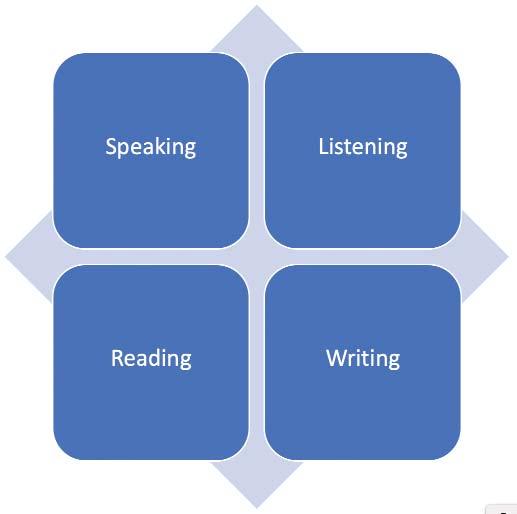
ReadingThe reading comprehension questions require you to be able to read quickly, and to be able to skim and scan for specific information.
Listening The IELTS listening exam is unusual in that students only hear each section once. It is therefore very important to stay focused throughout.
Writing Both sections of the writing examination require a specific sort of language and way of writing. Which is worked on extensively throughout study.
Road to IELTSYou will have an online subscription to the Road to IELTS programme, which has explanations, videos, exercises and practice tests online. Sometimes you will work on this in class but we encourage you to use it in your spare time too.
St Edmund’s is an independent, Catholic co-educational day and boarding school for pupils aged 3- 18
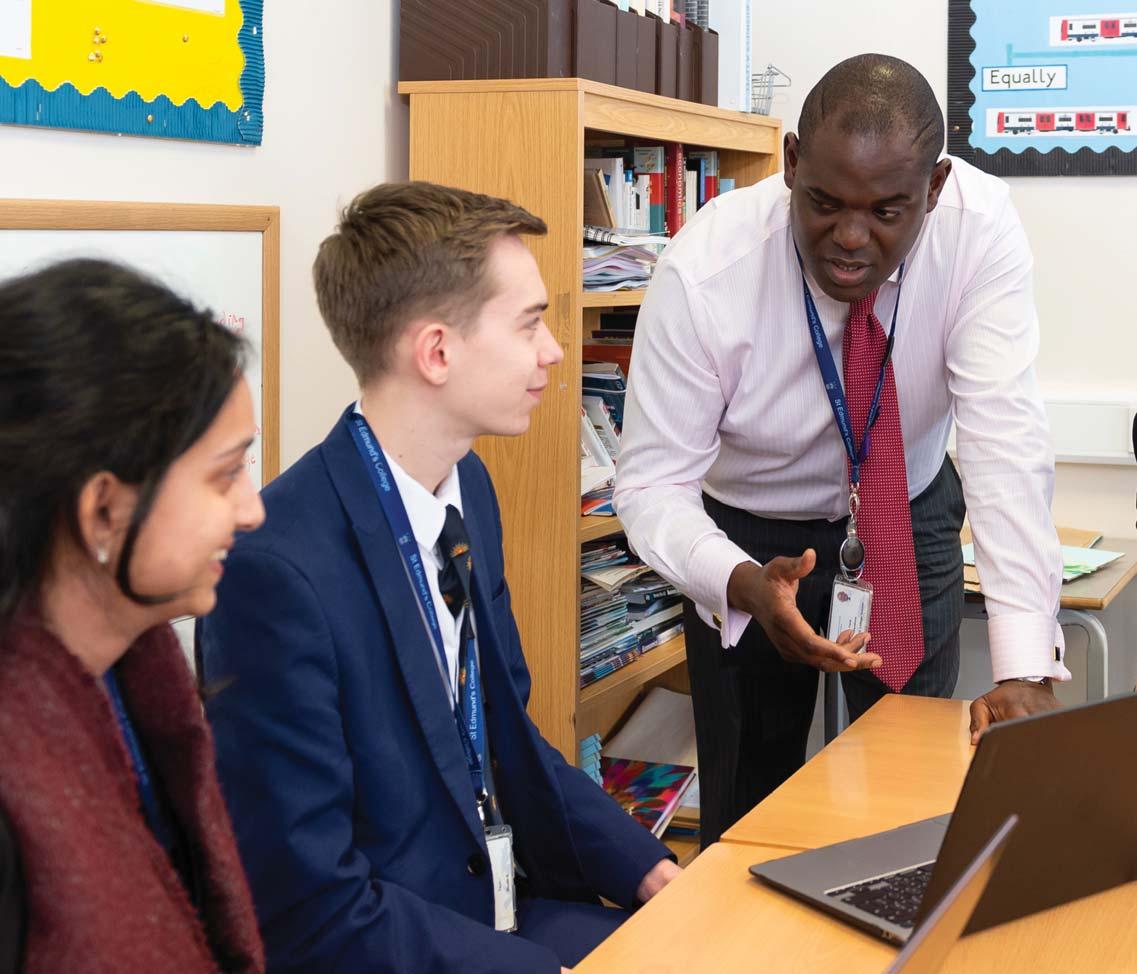
St Edmund’s College & Prep School
Old Hall Green
Ware, Hertfordshire
SG11 1DS
Tel: 01920 824247
Email: admissions@stedmundscollege.org
www.stedmundscollege.org